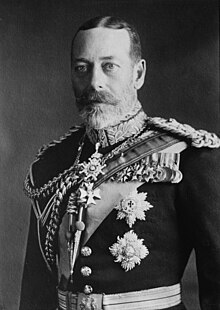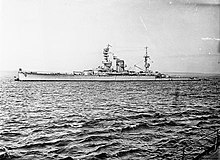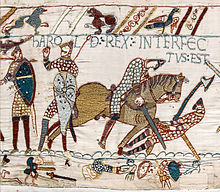Portal:History
The History Portal

History by Frederick Dielman
History (derived from Ancient Greek ἱστορία (historía) 'inquiry; knowledge acquired by investigation') is the systematic study and documentation of the human past. History is an academic discipline which uses a narrative to describe, examine, question, and analyse past events, and investigate their patterns of cause and effect. Historians debate which narrative best explains an event, as well as the significance of different causes and effects. Historians debate the nature of history as an end in itself, and its usefulness in giving perspective on the problems of the present.
The period of events before the invention of writing systems is considered prehistory. "History" is an umbrella term comprising past events as well as the memory, discovery, collection, organization, presentation, and interpretation of these events. Historians seek knowledge of the past using historical sources such as written documents, oral accounts or traditional oral histories, art and material artefacts, and ecological markers.
Stories common to a particular culture, but not supported by external sources (such as the tales surrounding King Arthur), are usually classified as cultural heritage or legends. History differs from myth in that it is supported by verifiable evidence. However, ancient cultural influences have helped create variant interpretations of the nature of history, which have evolved over the centuries and continue to change today. The modern study of history is wide-ranging, and includes the study of specific regions and certain topical or thematic elements of historical investigation. History is taught as a part of primary and secondary education, and the academic study of history is a major discipline in universities.
Herodotus, a 5th-century BCE Greek historian, is often considered the "father of history", as one of the first historians in the Western tradition, though he has been criticized as the "father of lies". Along with his contemporary Thucydides, he helped form the foundations for the modern study of past events and societies. Their works continue to be read today, and the gap between the culture-focused Herodotus and the military-focused Thucydides remains a point of contention or approach in modern historical writing. In East Asia a state chronicle, the Spring and Autumn Annals, was reputed to date from as early as 722 BCE, though only 2nd-century BCE texts have survived. The title "father of history" has also been attributed, in their respective societies, to Sima Qian, Ibn Khaldun, and Kenneth Dike. (Full article...)
Featured picture
Did you know (auto generated)

- ... that Fernando Cajías, who belongs to the first generation of professional historians in Bolivia, composed part of history academia's "Mirista wing"?
- ... that a historian lamented the lack of English-language translations for the work of Aracy Amaral despite it being "a vital reference for the study of art history in Brazil"?
- ... that alongside a 7th-century BC Phoenician shipwreck, two additional wrecks from various historical periods were unearthed in Bajo de la Campana, situated off the coast of Cartagena, Spain?
- ... that British architect Diane Haigh transformed one historic building into an art gallery and another into a hospice?
- ... that neurologist Christopher J. Boes has discussed the history of treating headaches without drugs?
- ... that soccer player Danielle Marcano scored four goals in back-to-back games that helped to send the University of Tennessee to the NCAA tournament quarterfinals for the first time in history?

Jürgen Ehlers (German: [ˈjʏʁɡn̩ ˈʔeːlɐs]; 29 December 1929 – 20 May 2008) was a German physicist who contributed to the understanding of Albert Einstein's theory of general relativity. From graduate and postgraduate work in Pascual Jordan's relativity research group at Hamburg University, he held various posts as a lecturer and, later, as a professor before joining the Max Planck Institute for Astrophysics in Munich as a director. In 1995, he became the founding director of the newly created Max Planck Institute for Gravitational Physics in Potsdam, Germany.
Ehlers' research focused on the foundations of general relativity as well as on the theory's applications to astrophysics. He formulated a suitable classification of exact solutions to Einstein's field equations and proved the Ehlers–Geren–Sachs theorem that justifies the application of simple, general-relativistic model universes to modern cosmology. He created a spacetime-oriented description of gravitational lensing and clarified the relationship between models formulated within the framework of general relativity and those of Newtonian gravity. In addition, Ehlers had a keen interest in both the history and philosophy of physics and was an ardent populariser of science. (Full article...)
On this day
January 1: Public Domain Day; Solemnity of Mary, Mother of God (Roman Rite Catholicism)
- 1725 – J. S. Bach led the first performance of his chorale cantata Jesu, nun sei gepreiset, which features trumpet fanfares at the start and end.
- 1801 – Italian astronomer Giuseppe Piazzi discovered the dwarf planet Ceres, naming it after the Roman goddess of agriculture and of motherly love.
- 1810 – Lachlan Macquarie (pictured) became Governor of New South Wales, eventually playing a major role in the shaping of the social, economic and architectural development of the colony in Australia.
- 1960 – Three men were killed and two wounded in a mass shooting at a public house in Sheffield, England.
- 1994 – The revolutionary leftist Zapatista Army of National Liberation initiated twelve days of armed conflict in the Mexican state of Chiapas.
- Betsy Ross (b. 1752)
- Alfred Ely Beach (d. 1896)
- Gary Johnson (b. 1953)
- Lhasa de Sela (d. 2010)
Selected quote
Those who would give up Essential Liberty to purchase a little Temporary Safety, deserve neither Liberty nor Safety.
— Benjamin Franklin, American statesman
Related portals
More Did you know...
- ... that the Soviet Tupolev Tu-142 (pictured) maritime patrol aircraft was developed in response to the American UGM-27 Polaris submarine-launched ballistic missile?
- ... that Harry Powers said that watching his victims die was more fun than a brothel?
- ... that the effort put forth by the subject of Miró's 1937 Naked woman climbing a staircase and her heavy limbs are thought to reflect the tragedy of the Spanish Civil War?
- ... that 49% of German military losses happened in the last 10 months of the Second World War in Europe?
- ... that Thomas Edison lost a fortune in his ore-milling company, but "had a hell of a good time spending it"?
- ... that American McCaull Comic Opera Company actress May Yohé, once the owner of the Hope Diamond, died poor?
- ... that Egyptian political cartoonist Ahmad Nady took part in the 2011 Egyptian revolution, drawing cartoons while he demonstrated?
- ... that finds unearthed at the Israelite Tower in Jerusalem's Jewish Quarter attest to the Babylonian sack of the city in 586 BCE?
Topics
Categories

History • By period • By region • By topic • By ethnic group • Historiography • Archaeology • Books • Maps • Images • Magazines • Organizations • Fictional • Museums • Pseudohistory • Stubs • Timelines • Chronology • People • Wikipedia historians
WikiProjects
![]() WikiProject History •
Ancient Near East • Australian History • Classical Greece and Rome • Dacia • Former countries • History of Canada • Chinese history • European history • Heraldry and vexillology • Indian history • Jewish history • Medieval Scotland • Mesoamerica • Military history • Middle Ages • History of Science
WikiProject History •
Ancient Near East • Australian History • Classical Greece and Rome • Dacia • Former countries • History of Canada • Chinese history • European history • Heraldry and vexillology • Indian history • Jewish history • Medieval Scotland • Mesoamerica • Military history • Middle Ages • History of Science
WikiProject Time • Days of the Year • Years
WikiProject Biography • Composers • Political figures • Saints • United States Presidents
Things you can do
 |
Here are some tasks awaiting attention:
|
Associated Wikimedia
The following Wikimedia Foundation sister projects provide more on this subject:
-
Commons
Free media repository -
Wikibooks
Free textbooks and manuals -
Wikidata
Free knowledge base -
Wikinews
Free-content news -
Wikiquote
Collection of quotations -
Wikisource
Free-content library -
Wikiversity
Free learning tools -
Wiktionary
Dictionary and thesaurus





















































